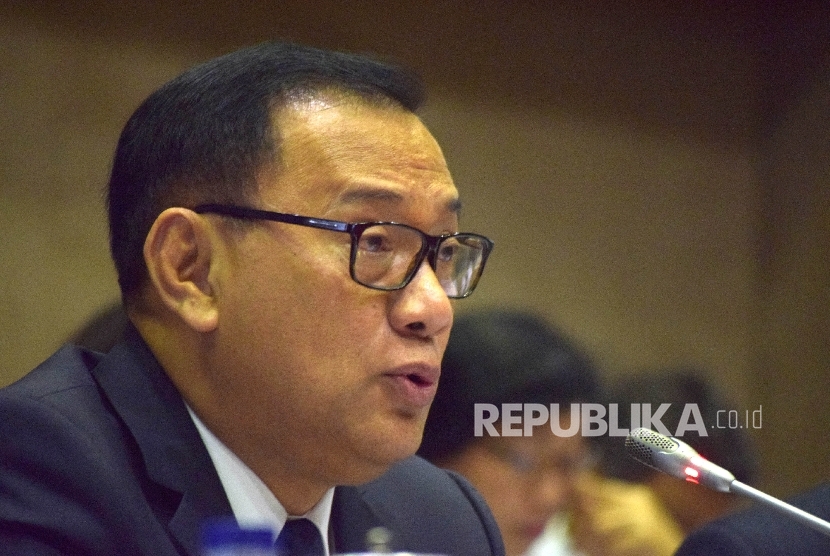REPUBLIKA.CO.ID, JAKARTA -- Bank Indonesia Governor Agus Martowardojo predicted the country would have a surplus in its balance of payment in 2016 despite a deficit in the first quarter of the year.
"Estimate in the whole year is positive," Agus said after a meeting of the Financial System Stability Committee (KKSK) here on Friday.
In 2015, the country recorded a deficit of US$1.1 billion in its balance of payments after a surplus of US$15.2 billion in the previous year.
Agus said deficit was still recorded in the first quarter of this year on pressure from the current account deficit despite surplus in the capital and financial account.
Surplus was recorded in the capital and financial account on expectation of improvement in domestic economy and relaxation of monetary policy in advanced nations, he said.
"We see that as natural with the capital and financial account surplus not enough to offset the current account deficit," he said.
The central bank recorded a deficit of US$300 million in the country's balance of payment in the first quarter of 2016 and foreign exchange reserve at US$107.5 billion by the end of March 2016.
The foreign exchange reserve was enough to cover imports and foreign debt servicing for 7.7 months.
The current account deficit resulted in a deficit in the balance of payments, although the trade balance is forecast to leave a surplus in the first quarter of 2016 on shrinking imports of commodities other than oil and gas.
The current account deficit narrowed from US$5.1 billion or 2.4 percent of the country's Gross Domestic Products in the last quarter of 2015 to US$4.7 billion or 2.1 percent of GDP in the first quarter of 2016.
The improvement in the current account performance was partly attributable to lower service account deficit as a result of falling imports of goods and smaller spending by Indonesian tourists abroad.
A surplus of US$4.2 billion was recorded in the capital and financial account in the first three months of 2016 thanks to inflows of portfolio capital investment such as from government sharia bonds , government rupiah bond , shares and direct investment.
Finance Minister Bambang Brodjonegoro said one factor that could create surplus in the country's balance of payment in 2016 is the tax amnesty policy.
Repatriation into the country of funds deposited abroad by Indonesian rich people would have positive impact on the country's capital and financial account, the minister said.
"We need capital inflows, therefore, tax amnesty is necessary," he said.
He said he had discussed with banking leaders repatriation instrument to be prepared by the government to ensure that the repatriated funds would stay long in Indonesia.
"It would be difficult for banks if we depend only on deposit as the instrument. Therefore, we would prepare various schemes related to government securities, shares and other banking instruments," he said.


